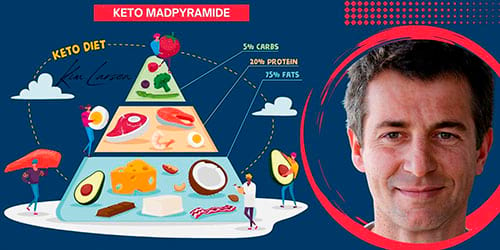Keto bacon wrapped asparagus
Free Australian health advice you can count on. Australia is a free keto bacon wrapped asparagus where you can talk to a nurse or doctor who can help you know what to do. Thank you for sharing our content. A message has been sent to your recipient’s email address with a link to the content webpage.

What are the effects of a ketogenic diet? Although it has benefits as a medical treatment for certain groups of people, there is little evidence to recommend it as a long-term weight loss technique for healthy people. People on a ketogenic diet eat a very small amount of carbohydrates, a moderate amount of protein and a high amount of fat per day. People on a ketogenic diet usually eat only 20g to 50g of carbohydrates per day or less. As an example, 50g of carbohydrate is equivalent to 2 slices of bread and a banana.
Evidence shows that the diet may be suitable for some people with certain medical conditions, but there is very limited evidence that healthy people should use it as a long-term diet. They are an excellent source of energy for the body and brain. Most foods that contain carbohydrates also provide vitamins, minerals and fibre for good bowel health. What to expect on a ketogenic diet A typical ketogenic diet significantly reduces a person’s intake of rice, pasta, fruit, grains, bread, beans and starchy vegetables such as peas and potatoes. For example, the Dietitians Association of Australia says that this could restrict you to the carbohydrate levels of only a small tub of yoghurt, a medium-sized potato and one apple a day. Many Australians find it hard to meet the recommended daily intakes of wholegrains, vegetables and fruit a day. The Australian Dietitians Association says that being on a ketogenic diet can make it harder to reach these targets without supplements.
A ketogenic diet should always be followed in consultation with your doctor or an accredited practising dietitian, to ensure that you get the right amount and types of fats, fibre and vitamins, as well as minerals like calcium, magnesium, iron and potassium. A ketogenic diet will usually lead to rapid weight loss. This may be due to water loss and because you get less hungry because the diet is high in foods containing fat and protein. The ketogenic diet as a medical treatment Evidence suggests that a ketogenic diet, under the supervision of a doctor or dietitian, is useful for children with epilepsy who continue to have seizures while on antiepileptic drugs. There is growing interest in its use in cancer, particularly in brain cancer, although more studies are needed on humans before this can be recommended.
For people who have type 2 diabetes, a ketogenic diet may improve blood sugar control in the short term. However, the long-term effects are not known, particularly on cholesterol levels, which increased in some studies. The ketogenic diet for weight loss The ketogenic diet is often promoted for weight loss in healthy people. There have been only limited and small studies on the ketogenic diet for weight loss. These studies have shown that the diet has short-term benefits in some people including weight loss and improvements in total cholesterol, blood sugar and blood pressure, but at one year these effects are about the same as those of conventional weight loss diets. While a ketogenic diet can be fast and effective in the short term, it can be hard to maintain because it is very limiting.